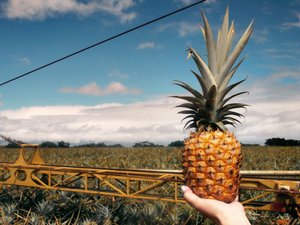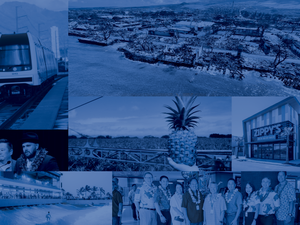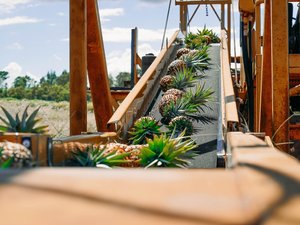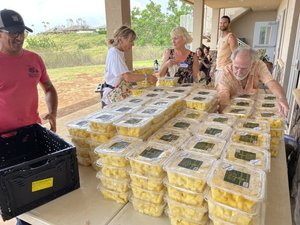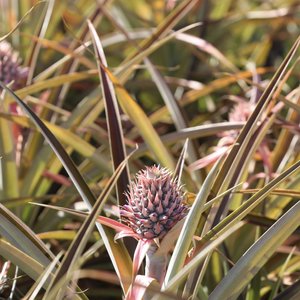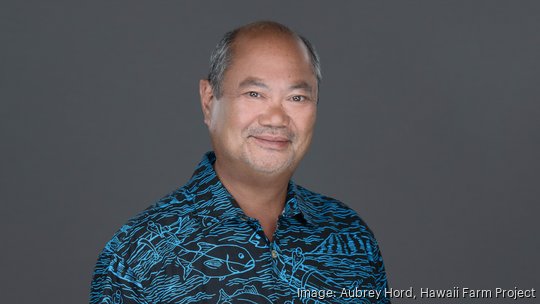
Rudy Balala, general manager of Maui Gold Pineapple, has been in the industry for 46 years. He started as a planter and pineapple picker during summers in high school and college, he said.
Maui Gold Pineapple was "hit hard" by the Maui wildfires on Aug. 8, which destroyed its Front Street store and shut down the stream of visitors to Kaanapali and Lahaina, Balala noted. Initially, the company shut down its farm tours completely.
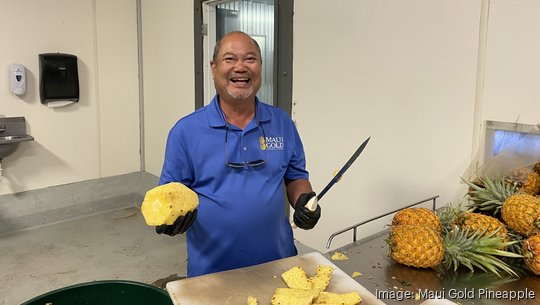
"It's slowly coming back," he said. "We've had good weeks and slow weeks, but overall it's starting to get a little bit better."
The exact cost of the loss has not yet been determined, but it might be 30% to 40% of revenue, since Maui Gold Pineapple supplied fruit to many local restaurants and stores, he said.
Balala recently shared his thoughts with Pacific Business News on the business impacts of the Maui wildfires, as well as the labor shortage, opportunities in technology and more.
What drew you to working in agriculture? When I entered the job market, if you wanted to find a summer job, you probably worked either on a pineapple plantation or a sugar plantation. It was the jobs [that were] available. There wasn't a lot of retail out there. There wasn't a lot of fast food out there. You did what you had to do to find a job and earn some money and help your parents. I did that and enjoyed working in agriculture, and the company really took good care of me. I'm all into loyalty. If they take care of you, you help take care of them.
What are some of Maui Gold Pineapple's goals for 2024? Going into the new year, we'd like to expand some of our business opportunities [such as] going a lot more into the direct-to-consumer business. We'd like to increase our plantings and, of course, take care of our employees.
How are you finding and retaining employees right now? In the past, pineapple on Maui was a very large business. You employed a couple thousand employees. You could work with labor contractors, church groups — and stuff like that — to get labor. It's gotten more difficult now with so many opportunities here on the island. We're not finding people who come in and do this type of work. We're trying to grow more fruit, but there's not enough labor to do that. So what we're trying to do now is ... work with technology to try and reduce the amount of labor that we need. A good example is we have guys going out to the World Ag Expo next week, and we're going to try look for people who might be able to develop a planting machine for us.
Are there other tech opportunities Maui Gold Pineapple is looking into right now? There's a lot of possibilities — autonomous tractors, better irrigation systems, definitely having planting being mechanized. That's the whole purpose of trying to attend these shows. There's a lot of technology out there. Unfortunately, because pineapple is not large in the United States, there's not a lot of pineapple-specific builders out there. So a lot of it is adapting technology that is out there now and trying to modify it to serve the pineapple business.
How is Maui Gold Pineapple responding to the damage that occurred from the high winds and wildfires that hit Maui on Aug. 8? It was devastating for us. We lost our offices in Lahaina. We lost our Front Street store. And we also lost the warehouse. ... We had some employees lose their homes — and when you're a small company like that — that kind of loss of revenue really hurts you. When the fires hit ... what we did was we donated a lot of the fruit that we had [to survivors]. We worked with boat companies to bring fruit by boat to Lahaina, and we kept that up for quite a while. We cut pineapple for them. We sent fresh pineapple to them, and it was a way — for us — of giving back to the community.
What trends do you see right now in agriculture? I think the trend is there's a lot of people who want to farm, or want to try and farm. There's a lot of problems associated with starting up a farm — labor, land, water, materials. We need as much help as we can to try and increase the food production in Hawaii because I think about 90% of our food comes from out of state. The more we can be self-sufficient on our food supply, the better off we'll be. We are stuck in the middle of nowhere. ... We need to be able to sustain ourselves. Being out in the middle of the ocean — we got a shipping strike, we got an airline strike — it affects everybody.
Following the Maui wildfires, how can readers help? For us ... try and buy local, as much as possible. All of the farmers and the producers here, we all struggle with the same problems — high cost of materials, high cost of labor, not enough labor — and the way to keep [these farms and producers] in business and keep them going is to try to support local, as much as you can.
To learn more about Maui Gold Pineapple, go here.
